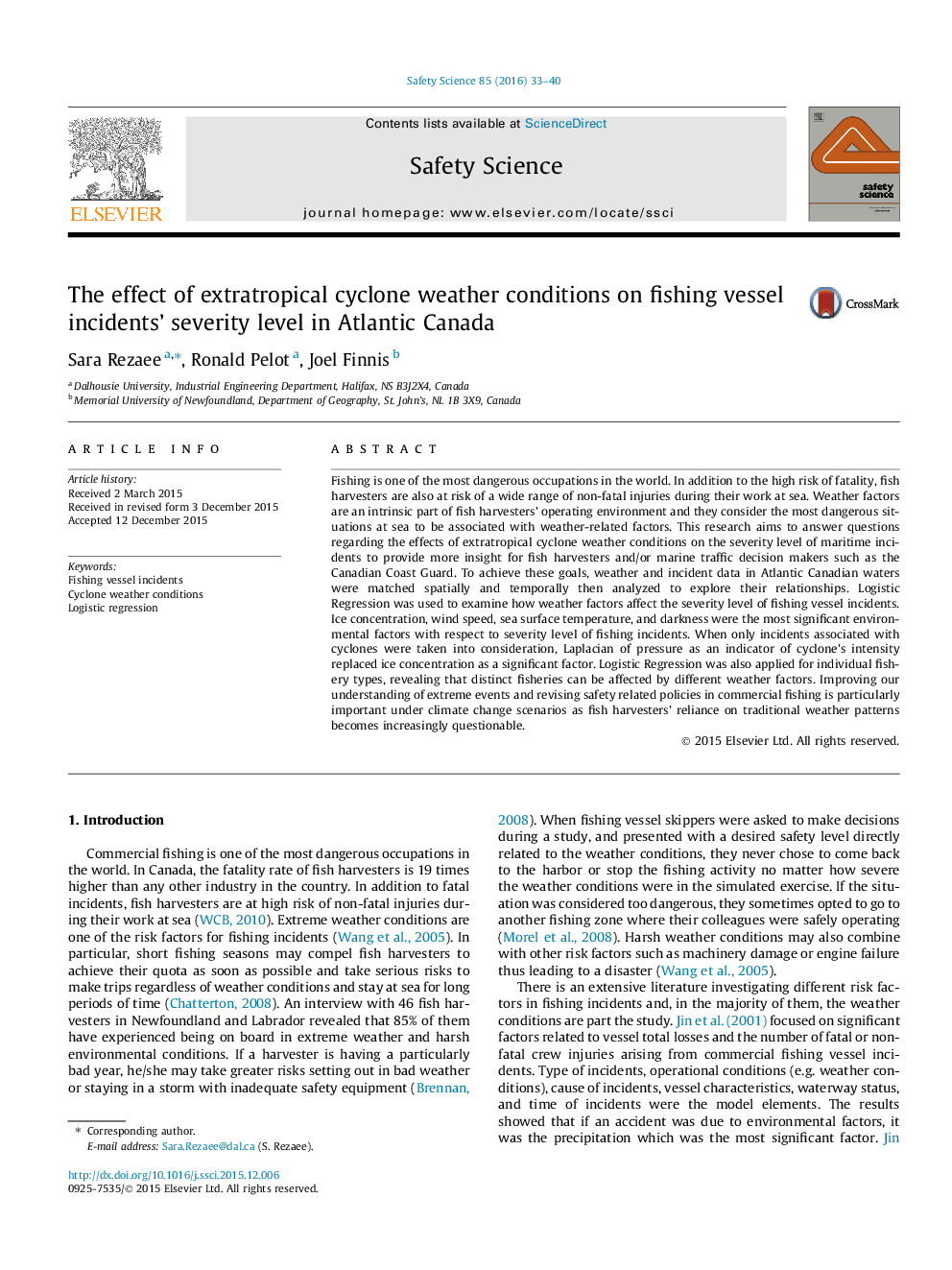| Article ID | Journal | Published Year | Pages | File Type |
|---|---|---|---|---|
| 6975404 | Safety Science | 2016 | 8 Pages |
Abstract
Fishing is one of the most dangerous occupations in the world. In addition to the high risk of fatality, fish harvesters are also at risk of a wide range of non-fatal injuries during their work at sea. Weather factors are an intrinsic part of fish harvesters' operating environment and they consider the most dangerous situations at sea to be associated with weather-related factors. This research aims to answer questions regarding the effects of extratropical cyclone weather conditions on the severity level of maritime incidents to provide more insight for fish harvesters and/or marine traffic decision makers such as the Canadian Coast Guard. To achieve these goals, weather and incident data in Atlantic Canadian waters were matched spatially and temporally then analyzed to explore their relationships. Logistic Regression was used to examine how weather factors affect the severity level of fishing vessel incidents. Ice concentration, wind speed, sea surface temperature, and darkness were the most significant environmental factors with respect to severity level of fishing incidents. When only incidents associated with cyclones were taken into consideration, Laplacian of pressure as an indicator of cyclone's intensity replaced ice concentration as a significant factor. Logistic Regression was also applied for individual fishery types, revealing that distinct fisheries can be affected by different weather factors. Improving our understanding of extreme events and revising safety related policies in commercial fishing is particularly important under climate change scenarios as fish harvesters' reliance on traditional weather patterns becomes increasingly questionable.
Keywords
Related Topics
Physical Sciences and Engineering
Chemical Engineering
Chemical Health and Safety
Authors
Sara Rezaee, Ronald Pelot, Joel Finnis,
